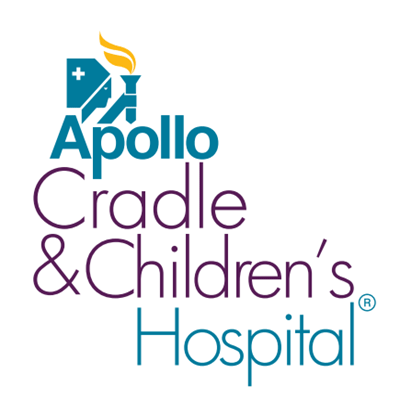Minimal invasive surgery (MIS), or laparoscopic surgery, is a revolutionary advancement in modern medicine. It is a minimally traumatic surgical technique that involves the use of small incisions and special instruments to access the body's interior. MIS offers many advantages over traditional open surgeries, including faster healing times, smaller scars, less risk of infection, and overall improved patient outcomes. This type of surgery is also more cost-effective for hospitals and healthcare providers. With its many benefits, MIS has become increasingly popular among medical professionals today.
What are the different types of Minimal Invasive Surgery/Laparoscopic Surgery?
There are various types of Minimal Invasive Surgery/Laparoscopic Surgery. These include laparoscopic cholecystectomy, laparoscopic appendectomy, laparoscopic hernia repair, and laparoscopic hysterectomy. Other types include diagnostic laparoscopy, fertility surgery such as tubal ligation reversal or egg retrieval, and robotic surgery. Laparoscopy can also be used to diagnose ovarian cysts or endometriosis and perform a tubal ligation. Additionally, laparoscopy may be used in other areas of the body, such as the gallbladder, intestines, and appendix.
Who qualifies for Minimal Invasive Surgery/Laparoscopic Surgery?
Minimal Invasive Surgery/Laparoscopic Surgery is suitable for those with certain conditions, such as ovarian cysts, endometriosis, uterine fibroids, and abnormal uterine bleeding. It may also be beneficial to those who wish to preserve their fertility during the surgical treatment. Patients with extensive pelvic adhesions or a history of previous abdominal surgery may also be eligible. Laparoscopy is most often recommended for women with symptoms that suggest an ovarian pathology; however, it can also be used in men undergoing vasectomy reversal or sperm retrieval procedures.
When would a doctor suggest undergoing Minimal Invasive Surgery/Laparoscopic Surgery?
Doctors recommend patients undergo Minimal Invasive Surgery/Laparoscopic Surgery when they have an existing medical condition that requires surgical intervention. This type of surgery is often recommended for benign gynecologic conditions, such as endometriosis or fibroids, as well as pelvic adhesions, ovarian cysts, and ectopic pregnancies. It is also used to treat bladder prolapse, ovarian cancer, and some forms of infertility. Laparoscopic surgery can also be used to diagnose certain conditions, such as pelvic inflammatory disease or appendicitis.
How should a patient prepare for Minimal Invasive Surgery/Laparoscopic Surgery?
Doctors recommend that patients undergo Minimal Invasive Surgery/Laparoscopic Surgery when they experience chronic pelvic pain, infertility, or endometriosis. The procedure can also be recommended for fibroids and ovarian cysts that require removal. In cases of ectopic pregnancy, laparoscopic surgery may also be necessary to remove the foetus from the fallopian tubes. Moreover, if a woman is having difficulty conceiving due to blocked fallopian tubes or has had multiple miscarriages, doctors may suggest this procedure to investigate and treat the issue.
What are the benefits of Minimal Invasive Surgery/Laparoscopic Surgery?
Minimal Invasive Surgery/Laparoscopic Surgery has many benefits. It typically requires a smaller incision than traditional surgery, resulting in less post-operative pain and scarring. Patients also experience faster recovery times, a reduced risk of infection, and fewer complications overall. Laparoscopic procedures often require shorter hospital stays and can be performed as outpatient surgeries. Additionally, the improved visualisation provided by laparoscopy allows for more precise surgical techniques.
Conclusion
Laparoscopic surgery is a minimally invasive fertility procedure that can help couples who have been struggling to conceive. With its low risk of complications and minimal downtime, it is becoming an increasingly popular option for people seeking assistance with their fertility issues. It's an effective way to diagnose and treat these conditions, and in many cases, it eliminates the need for more invasive procedures. Ultimately, laparoscopic surgery has the potential to help couples achieve their dream of starting a family.
Request an appointment at Apollo Cradle, Bengaluru - Brookefield. Call 1860-500-4424 to book an appointment.
Laparoscopic surgery, also known as minimally invasive surgery, is a surgical technique where a small incision is made in the abdominal wall to gain access to the internal organs for diagnosis or treatment.
The main benefits of laparoscopic surgery include reduced pain, infection risk, and scarring compared to traditional open surgery. It can also lead to shorter hospital stays and quicker recovery times.
Times vary depending on the type of procedure being performed, but usually laparoscopic procedures take between 30 minutes and two hours.
Yes, laparoscopic surgery is generally considered very safe, with low risks of complications or adverse outcomes. However, as with any surgical procedure, there are potential risks and side effects that should be discussed with your doctor prior to any operation.
Generally, local or general anaesthesia will be used depending on the type and complexity of the procedure being performed.

 95 Patient Satisfaction Score
95 Patient Satisfaction Score






